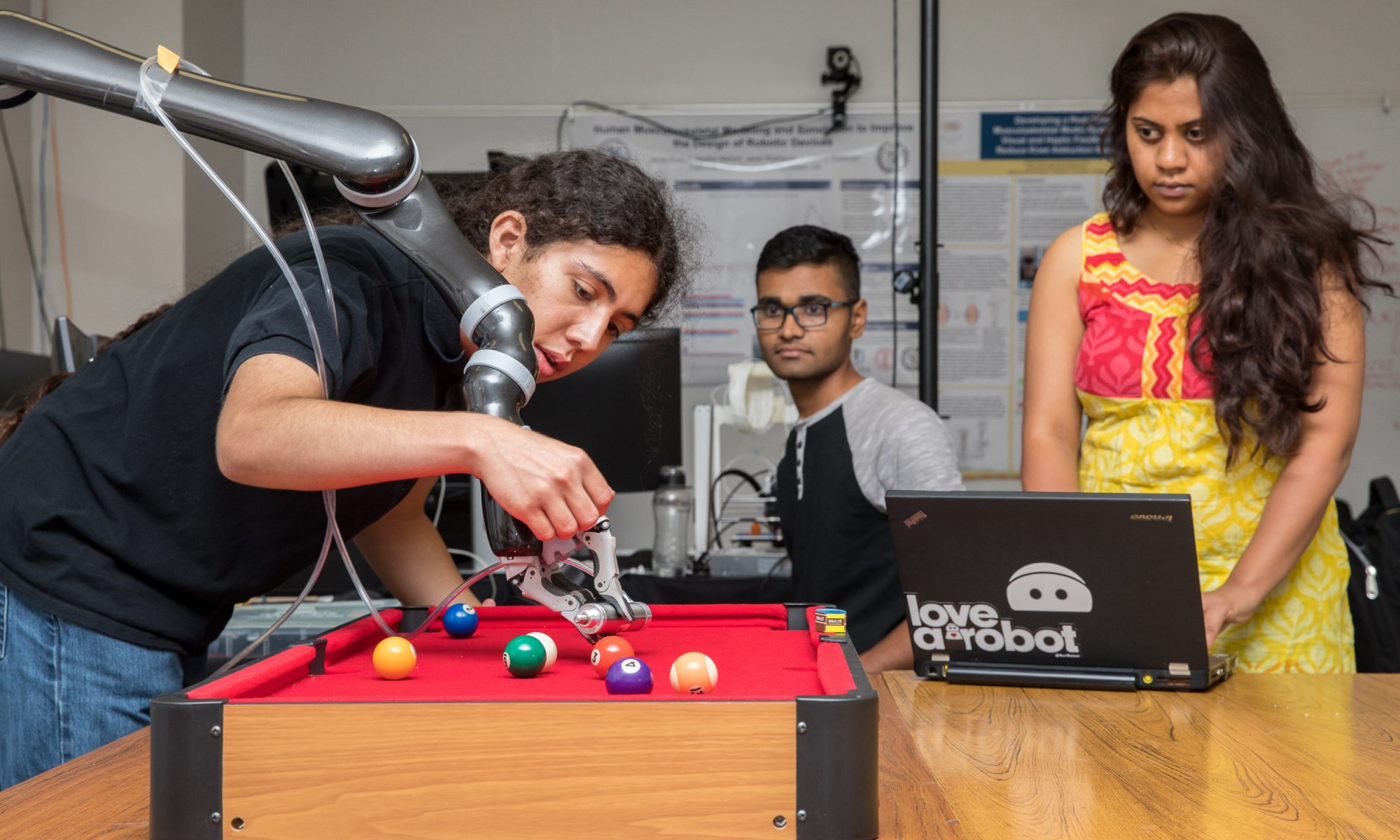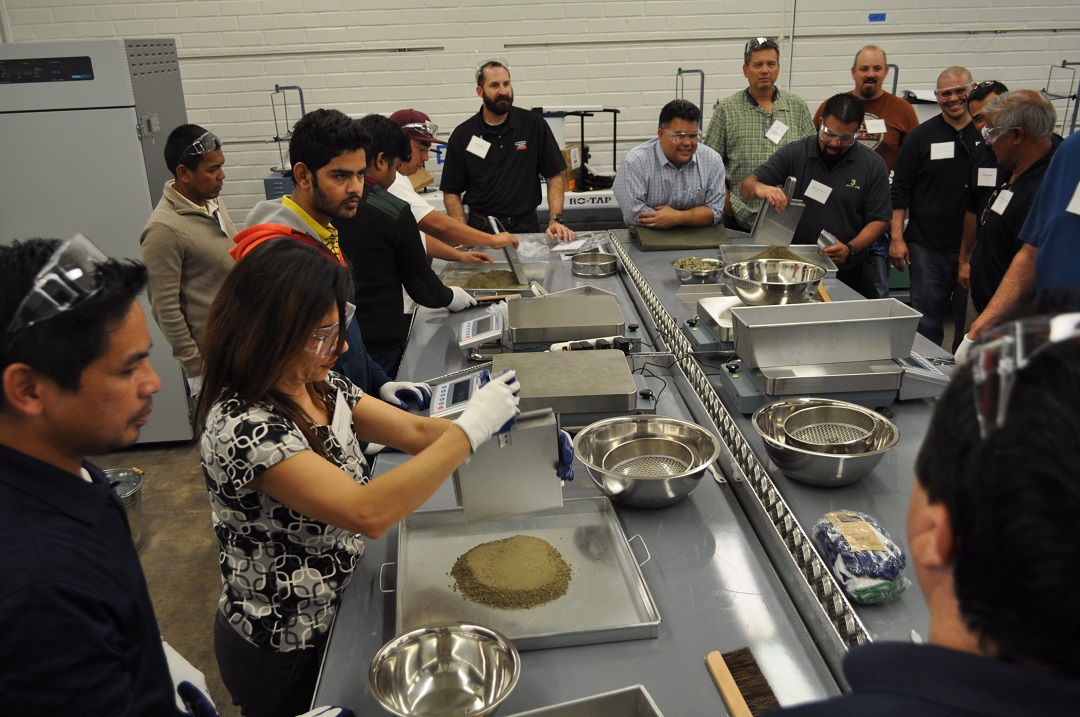They usually test construction materials. But this week, two dozen Caltrans and industry technicians from throughout the state were at Cal State Long Beach to test out a new program to increase quality and reduce delays on construction projects.
Supported by a $1.3 million interagency agreement with Caltrans, and implemented by CSULB, the Joint Training & Certification Program (JTCP) will deliver training and certification for materials testing technicians in the specialties of Hot-Mix Asphalt, Soils and Aggregates, and Portland Cement Concrete.
 This week’s two-day pilot class, a combination of seminar and lab, was intended to iron out any wrinkles before the first classes begin early next year. “I hope you have a great experience,” principal investigator Shadi Saadeh, a CSULB civil engineering associate professor, told the testers. “I really appreciate the time you’ve taken to offer your feedback.”
This week’s two-day pilot class, a combination of seminar and lab, was intended to iron out any wrinkles before the first classes begin early next year. “I hope you have a great experience,” principal investigator Shadi Saadeh, a CSULB civil engineering associate professor, told the testers. “I really appreciate the time you’ve taken to offer your feedback.”
“Hopefully we’ll have a couple of days of learning and getting our hands dirty in the labs,” said Caltrans JTCP program manager Jeremy Peterson-Self, who was taking detailed notes on improving learning processes for the Caltrans-mandated program.
LASTRADA Partners President Dan Ridolfi led the morning seminars and Dave Aver, quality control associate with the city of Santa Rosa, led the afternoon lab portions.
“I think it’s really important for industry to deliver a high-quality product to California taxpayers,” said Ridolfi. “The Joint Training & Certification Program makes sure quality materials are being used.”
Hot-Mix Asphalt and Soils & Aggregates classes will be offered in early 2018, each accommodating about two dozen testers, said Peterson-Self. Materials testers will be enrolled in the JTCP as their certifications expire.
Given an expected influx of transportation funding coming from the SB1 transportation bill, projects will need trained technicians at the ready to ensure the quality control of materials being used.
 Technicians will earn their certification by taking a prerequisite test in one area of specialization, followed by in-person class, laboratory and written/practical examination sessions.
Technicians will earn their certification by taking a prerequisite test in one area of specialization, followed by in-person class, laboratory and written/practical examination sessions.
Caltrans, local agency and contractor personnel attend the same classes, work together and receive equivalent training and certification. This practice ensures consistency and lets individuals and agencies to verify progress and certifications held by other individuals.
Peterson-Self said he expects it will take two or three years for all testers to go through the program, however if a quicker pace is desired, the program is easily scalable.
“There are a lot of states doing this. California is slow to the game, but we’re coming around,” said Ridolfi. “This is a great program. I’m so excited to be part of it.”
For more information, visit http://www.csulb.edu/jtcp.


